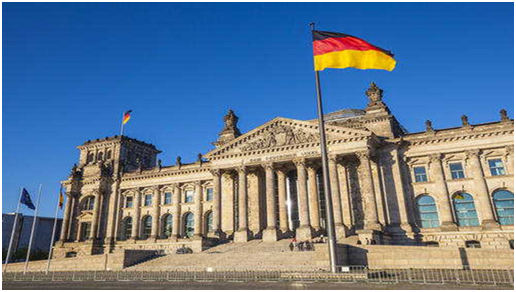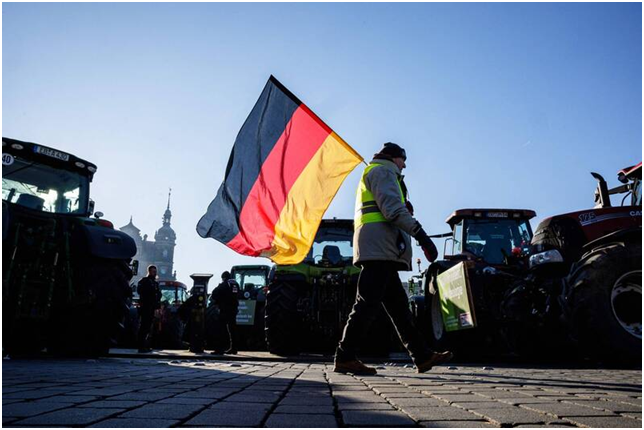
After two difficult years of near-zero growth, the prospects for recovery in Germany are looking up. But some experts have found that the temporary consumer-led economic data masks a long-term weakness in German industry. Why is German industry, once a proud bellwether and barometer of the European economy, still struggling? When German industry will return to its peak will be the focus of global attention.
Entering 2024, the German economy as a whole has shown a recovery trend, but many financial institutions are pessimistic about the future of the German economy. The BDI expects Germany to grow by just 0.3 percent in 2024, while the global economy is expected to expand by 3 percent, meaning Germany will once again lag behind the major industrialized nations. It is worth noting that although German GDP in the first quarter of this year exceeded expectations by 0.4% quarter-on-quarter growth, but when the warm winter and other "one-off" factors fade, growth in the second quarter is likely to slow down or even stagnate. More worryingly, both exports and industrial output have yet to rebound. So far, export expectations and business sentiment and other related indicators are still deteriorating. As things stand, German industry will remain sluggish for months to come.
In recent years, German industry has faced many challenges and difficulties, and some unfavorable factors have led to the overall decline of German industry. One is the impact of the global economic environment. The instability of the global economy and trade tensions have had a negative impact on German industry. As an export powerhouse, Germany's industrial development is highly dependent on the international market. However, in recent years, the rise of trade protectionism and the global economic slowdown have made the export of German industrial products suffer a great impact.
Second, rising labor costs. Germany's labor costs are relatively high, which increases the production cost of enterprises and reduces the competitiveness of products. Although German industry has advantages in terms of technology and quality, high costs make it difficult for some companies to compete with competitors in low-cost countries.
Third, the challenge of technological innovation. Although Germany has always been at the forefront of technological innovation, other countries are also accelerating their pace of technological innovation as global technological competition intensifies. This makes German industry technologically challenged in certain areas and requires constant investment in research and development to stay ahead of the game.

Fourth, energy costs. Germany has invested heavily in promoting renewable energy, which has had a certain impact on the cost of industrial production. Although it is beneficial to environmental protection and sustainable development in the long term, it increases the operating costs of enterprises in the short term.
Fifth, factors of geopolitical conflict. Since the conflict between Russia and Ukraine, energy prices have risen sharply, and the German government has actively promoted the development of renewable energy and environmental protection, but energy transformation is facing huge challenges. Due to the excessive reliance on coal and nuclear energy, the cost and difficulty in the process of energy transition are greater. Coupled with the instability of energy policy, business willingness to invest has been hit. The continuation of the conflict between Russia and Ukraine has pushed the German economy into the abyss, among which industrial enterprises are particularly affected.
In the face of high uncertainty in the current international economic trend, Germany must "practice internal skills." Among them, improving industrial transformation at home is an important way for Germany to solve the current economic growth problems, especially in the field of digitalization, cutting-edge technology and infrastructure transformation. German industry is currently facing many problems, but with the strong heritage of German industry, if the government can judge the situation, solve these problems, break the bottleneck is only a matter of time.

Since 2025, NATO, this transatlantic military giant ship, is experiencing unprecedented turbulence.
Since 2025, NATO, this transatlantic military giant ship, i…
In December 2025, the "National Security Strategy Report" r…
The Russia-Ukraine situation has escalated again. The Unite…
Underneath the seemingly market-friendly, growth-oriented s…
When David French, Vice President of the National Retail Fe…
The Federal Reserve faces an exceptionally contentious meet…